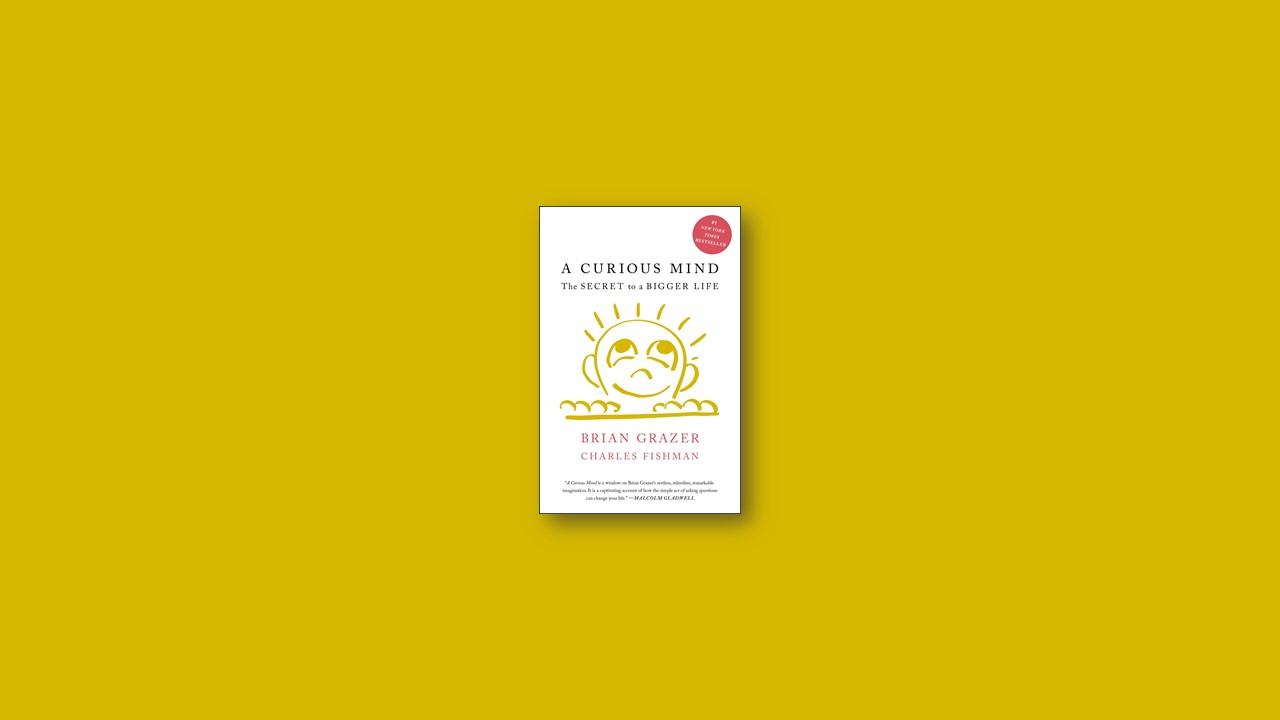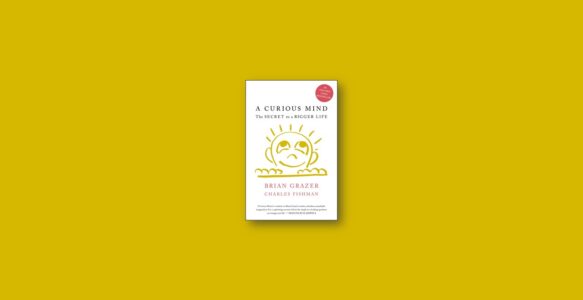Curiosity has no cure
Curiosity doesn’t only help you solve problems—no matter what those problems are. There’s a bonus: curiosity is free. You don’t need a training course. You don’t need special equipment or expensive clothing, you don’t need a smartphone or a high-speed Internet connection.
You’re born curious, and no matter how much battering your curiosity has taken, it’s standing by, ready to be awakened.
At the heart of good storytelling is Curiosity
When you watch a movie that is completely engrossing, what happens to you?
When you binge-watch the latest episodes of Arrested Development or House of Cards, what causes you to touch the PLAY button just one more time, six times in a row?
When you read a book, what keeps you in the chair, turning pages way past the moment when you should have set the book down and gone to sleep?
Curiosity. Inspiring curiosity is the first job of a good story.
Curiosity keeps you turning the pages of the book, it tugs you along to watch just one more episode, it causes you to lose track of the day and the time and the weather when you’re in a theater seat.
Curiosity is a vital piece of great storytelling—the power of a story to grab hold of your attention, to create the irresistible pull of that simple question: what’s going to happen next?
Good stories make you Care
Good stories have all kinds of powerful elements. They have fascinating characters caught in revealing or meaningful or dramatic dilemmas. They have talented acting, good writing, and vivid voices. They have plots that are surprising, with great pacing and settings that transport you to the story’s location. They create a world into which you can slip effortlessly—and then lose yourself.
But it’s all in service of one goal: Making you care. You can say you care about the characters or the story, but all you really care about is what’s going to happen next. What’s going to happen in the end? How is the tangle of plot lines going to be untangled? How is the tangle of human relationships going to be untangled?
A story may or may not make its point memorably. It may or may not be entertaining or compelling, funny or sad, upsetting, even enraging.
But none of those qualities matter if you don’t get the whole story—if you don’t actually watch the movie or read the book. If you don’t stick around, it doesn’t matter what the point of the story is. To be effective, a story has to keep you in the chair—whether you’re holding a Kindle, or sitting in your car with your hand on the radio knob, or sitting in the multiplex.
Curiosity feeds Persistence and vice versa
Curiosity rewards persistence. If you get discouraged when you can’t find the answer to a question immediately, if you give up with the first “no,” then your curiosity isn’t serving you very well.
Likewise, persistence without curiosity may mean you chase a goal that isn’t worthy of the effort—or you chase a goal without adjusting as you learn new information. You end up way off course. Persistence is the drive moving you forward. Curiosity provides the navigation.
Curiosity can help spark a great idea, and help you refine it. Determination can help you push the idea forward in the face of skepticism from others.
Together, they can give you confidence that you’re onto something smart.
Curiosity is Connecting
At work, you can manage people by talking at them—but you can’t manage them very well by doing that. To be a good manager, you need to understand the people you work with, and if you’re doing all the talking, you can’t understand them.
And if you don’t understand the people you’re working with, you certainly can’t inspire them.
At home, you can be in the same room as your partner or your kids, but you can’t be connected to them unless you can ask questions about them and hear the answers. Curiosity is the door to open those relationships, and to reopen them. It can keep you from being lonely.
Curiosity isn’t necessarily about achieving something—about driving toward some goal. Sometimes, it’s just about connecting with people. Which is to say, curiosity can be about sustaining intimacy. It’s not about a goal, it’s about happiness.
Curiosity is not Persuasion
Curiosity isn’t to persuade you to have the same opinion as anyone else. It’s to give you a framework for understanding his work. You still have your own reaction—you can say, I understand the importance of Andy Warhol, but I don’t really like his art. It’s not to my taste.
There’s one small caveat to using curiosity to develop good taste. Not everyone gets a sense of taste about art or music or food driven by their own curiosity and energy. If you grow up with parents who care about opera, who fill the house with classical music or modern art, poetry, or fine cuisine, you may well arrive at adulthood with a very well-developed sense of taste about those things. Especially as a child, you can develop taste based on immersion. That may be the best way to develop a sense of taste, in fact, but it’s not an opportunity most of us have. And it’s certainly not an opportunity we get to choose.
Curiosity equips ups with the skills for openhearted, open-minded exploration. That’s the quality of curiosity conversations.
Curiosity also gives us the skills to zero in on the answer to a question. That’s the quality of a police detective driven to solve a murder. That’s the quality of a physician determined to figure out what disease is causing a patient’s set of oddly contradictory symptoms and test results.
Curiosity feeds Courage and vice versa
Curiosity requires a certain amount of bravery—the courage to reveal you don’t know something, the courage to ask a question of someone. But curiosity can also give you courage. It requires confidence—just a little bit—but it repays you by building up your confidence.
Curiosity, the more you use the more it grows
Curiosity can easily become a habit—the more you use it, the more naturally it will come to you. But you can also use curiosity actively—you can always overrule your natural pacing of asking questions and say to yourself, This is something I need to dig into. This is something, or someone, I need to know more about.
Synthetic, not Destructive
Curiosity looks like it’s a “deconstructive” process. That seems almost obvious—by asking questions about things, you’re taking them apart, you’re trying to understand how they work, whether it’s the engine in your Toyota Prius or the personality of your boss. But, in fact, curiosity isn’t deconstructive. It’s synthetic. When curiosity really captures you, it fits the pieces of the world together. You may have to learn about the parts, but when you’re done, you have a picture of something you never understood before.


